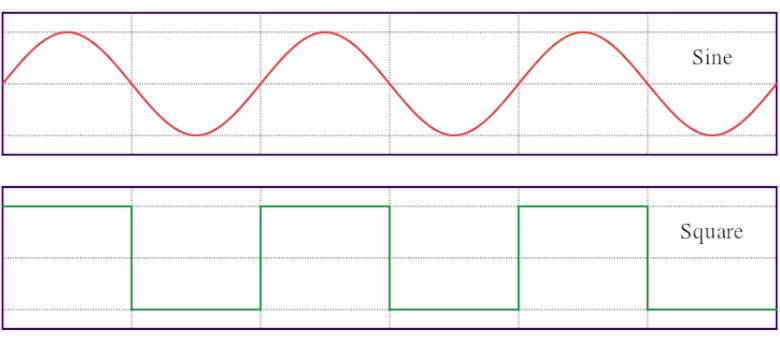Just looking for a decent inverter for electricity backups. You need to understand what kind of inverters are available in the market. Usually, you’ll find Sine wave and Square Wave inverter.
You can see below the image as in reference to how sine and square wave looks like. The sine wave is very similar to alternate current while Square wave is just mimicking the current waves but in the direct current style. But both the inverters can run appliances that run on alternate current.

Sine wave inverters are recommended for household use because it is capable of smoothly running sensitive home appliances like television, refrigerator, computers, and laptops. On the other hand, Square wave inverters are a less reliable but cheaper option for users and only useful for motors.
Let’s compare both kind of inverters side by side…
| Features | Sine Wave Inverter | Square Wave Inverter |
| Supported Appliances | Sine wave inverters are used to support household appliances such as refrigerators ovens, computers, laptops, etc. | Square wave inverters are only useful for motor or non-sensitive appliances. |
| Noise Interference | Sine wave inverters make normal sound when used. It is negligible can’t be noticed. | Square wave inverters make loud noise when used. You may hear buzzing sound. |
| Safety | Sine wave inverters are reliable and highly safe to use. | Square wave inverters are less reliable and unsafe to use for sensitive appliances. |
| Cost | Sine wave inverters are costly compared to square wave but affordable these days. | Square wave inverters are relatively cheaper than sine wave inverters. |
Some inverters like “modified sine wave inverter” which is comparatively cheaper to a sine wave one, but they are not reliable for sensitive devices for the long run.
Pure sine wave inverters are the better one but cost is relatively high. It is only recommended if you are planning to use it like an UPS for computers and similar sensitive appliances.
For any use sine wave inverters are highly safe option.
Leave a Reply